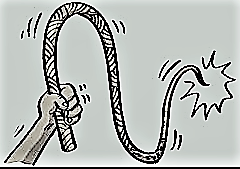(12 December 2017) On 26 November 2017, the Public Order Court in Al Haj Yousef, Khartoum North convicted nine people, including six children aged between 13-16 years for violating articles 69 ( disturbing public peace) and 77 (public nuisance) of the Sudanese Criminal Act 1991. The six children were sentenced to 20 lashes each, while the three adults were sentenced to 3 months imprisonment and a fine of SDG 5000 (approximately $750) each.
The names of the six children are:
- Mohammed Adil Ibrahim (m)
- Almonzer Mohammed Fadhl Elseed (m
- Musab Ali Abdallah (m)
- Omer Hamza Moustapha (m)
- Ibrahim Taha Ibrahim (m)
- Eltayeeb Kabashi Elhadi (m)
The names of the three adults are:
- Mudather Elkhair Abdelgalil
- Zaki Elsamaani
- Sidig Babikir Adam Idriss
The nine were arrested on 25 November 2017 from Eljareef neighbourhood following a peaceful demonstration against a plan by authorities to seize land in the area.
Lashing penalties are routinely implemented by Sudanese courts as hudud punishment for a number of offences under the 1991 Criminal Act as well as public order laws enacted by localities. However, article 77 of the Child Act of 2010 prohibits courts from handing down lashings penalties against children.
The African Commission of Human and Peoples’ Rights found no justification for Sudan to apply physical violence to individuals for offences as such justification would tantamount to state sanctioned torture. The Commission further found that Sudan had violated the prohibition against torture (article 5) and urged the Sudanese Government to amend the 1991 Criminal Act, abolish the penalty of lashes and ensure that its law is in in conformity with its obligations under the African Charter and other international human rights instruments. Despite this ruling, the Sudanese law still provides for lashing penalties and Sudanese courts continue to hand down lashing sentences.
Article 16 of the African Charter on the Rights and Welfare of the Child places an obligation on state parties to ensure that specific legislative, administrative, social and educational measures to protect the child from all forms of torture, inhuman or degrading treatment and especially physical or mental injury or abuse, neglect or maltreatment including sexual abuse, while in the care of the child. Though the Child Act prohibits lashing punishments against children, other laws such as the Criminal Act that allow for lashing penalties have been applied to children. The sentenced handed down by the Al Haj Yousef Public Order Court against the six children contravenes with the 2010 Child Act.
Lashing penalties are routinely implemented in the court complex immediately after a summary hearing in which the accused does not have legal representation or the opportunity to appeal the sentence, raising serious concerns about the right to fair trial.
ACJPS condemns the implementation of lashing penalties especially against children and calls on the Government of Sudan to ensure that the Child Act 2010 is adhered to. ACJPS further calls on Sudan to repeal all laws prescribing corporal punishments including lashing, and ensure its conformity with international obligations. In the same regard, Sudan should also amend its criminal law to ensure that it is in conformity with the Constitution, 2010 Child Act and its international obligations.
Background
Repression of any form of dissent or protest in Sudan has been facilitated by laws that restrict freedom of expression, association and assembly and that provide authorities with broad powers of arrest, detention and use of force.
Criminal charges have also been levelled against individuals engaged in peaceful demonstrations. On 29 November 2016, seven female activists and members of the “No to Women’s Oppression” initiative were arrested outside the home of Prime Minister Ismail Al Azhari in Omdurman, where they had conducted a silent peaceful sit-in protest and held signs condemning the austerity measures. The group was charged with disturbance of public peace and public nuisance, and released a few hours later on bail.
In the past, mass civil disobedience campaigns have been met with widespread repression by Sudanese authorities. Sudanese authorities responded with a violent crackdown to large-scale protests that swept the country following the announcement of austerity measures in September 2013, with security forces and armed men allied to them using live ammunition, tear gas and batons. Despite the establishment of three state commissions of inquiry, Sudanese authorities have yet to provide justice to victims of a violent crackdown on anti-austerity protesters in Khartoum in September 2013.
In 2016, a spate of arrests of activists, human rights defenders, and political opposition party members in November and December 2016 came alongside a civil disobedience campaign organized against austerity measures in the country instituted in early November. This also included organised strike committees such as the Teachers’ Strike Committee and the Sudanese Doctors’ Central Committee, who had fourteen of its members arrested and detained incommunicado in November 2016.
Contact: Mossaad Mohamed Ali (English, Arabic, Swedish): +256 779584542; Cynthia Ibale (English) cynthia@acjps.org
 African Centre for Justice and Peace Studies ACJPS | المركز الافريقي لدراسات العدالة و السلام
African Centre for Justice and Peace Studies ACJPS | المركز الافريقي لدراسات العدالة و السلام




